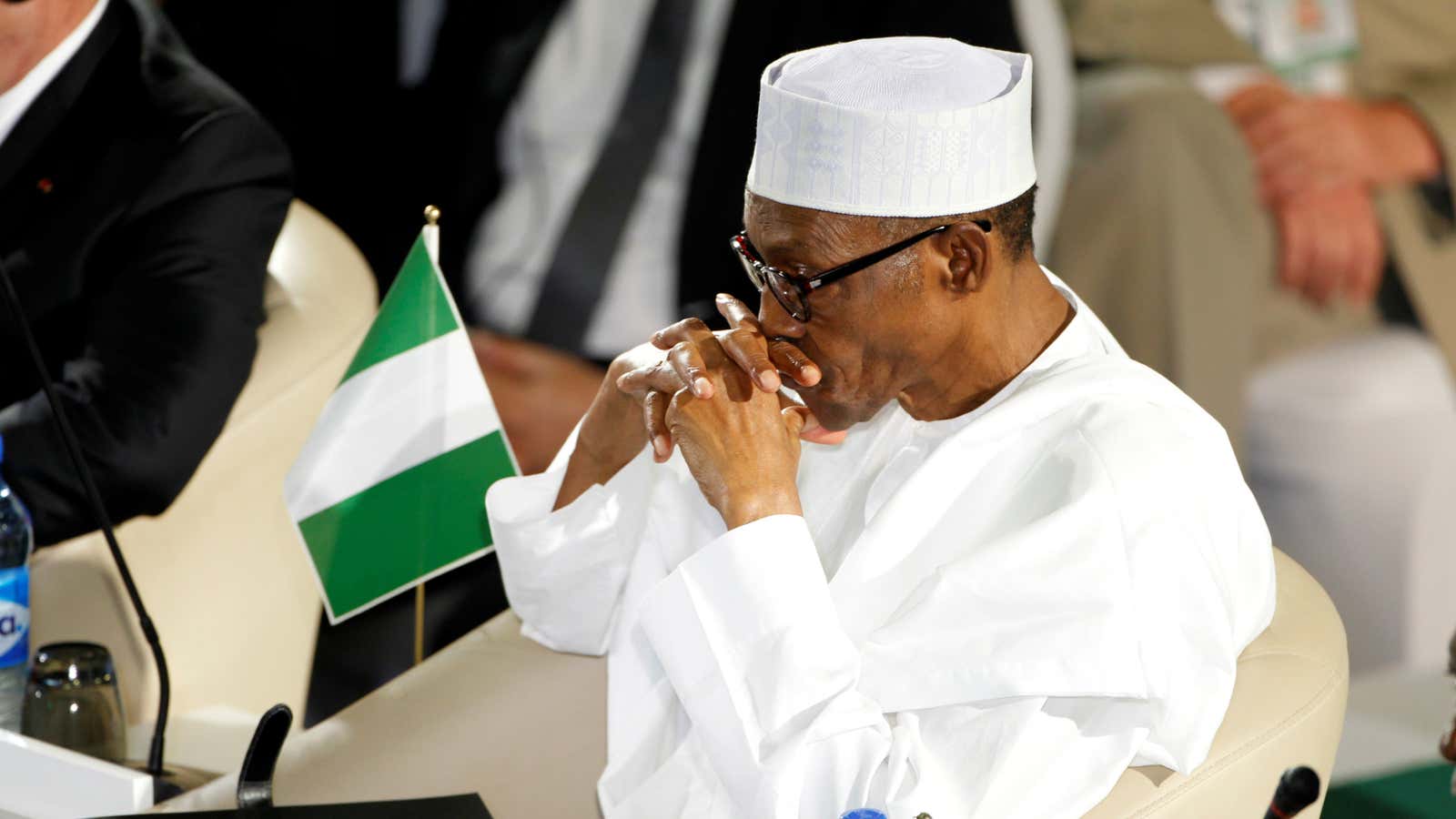Nearing the end of his first full calendar year in office, Nigeria’s president Buhari is coming in for strong criticism.
In the space of a week, several international media outlets have published scathing reports on Buhari’s handling of the economy and general tenure as president. In fairness, some allow that Buhari faced an uphill task upon taking office. The Financial Times says the president inherited “dire straits” while Bloomberg also acknowledged “Buhari faced ugly circumstances” when he became president. But it is the president’s response to the economic crisis which has been heavily criticized. AFP, the French news agency, writes that the president’s ineffective policies have lead many to believe he “doesn’t have what it takes to rescue Nigeria from recession.”
The criticism from international media for Buhari is noteworthy as, since taking office, Buhari has shown a preference to speak with foreign media over local reporters, perhaps with a view to reach much needed global investors. Yet, plenty of the criticism aimed at the president is linked to policies which have seen the economy slip into a first recession in decades and is now on course for a full year of negative growth.
To reverse the trend, Bloomberg advocates visionary leadership from Buhari and “more flexibility” stating that “Buhari’s rigid leadership style has made the economic problems of Africa’s largest economy harder to solve.” The lack of flexibility is mainly in regard to stiff currency controls which have triggered a foreign exchange crisis, hobbling businesses and denting investor confidence. Buhari’s tactics of currency controls have included arresting local foreign exchange dealers accused of hiking the black market rates. AFP points out that Buhari’s stand-off with lawmakers has resulted in “policy paralysis” with little or no progress made in stopping the economic slide. Typifying the discord, Buhari’s proposal to borrow $30 billion to boost the economy was rejected by the Senate at the start of the month.
Foreign Policy describes Buhari’s decisions as “eccentric” but also spotlights his run-ins with democratic conventions, branding him the “same old authoritarian showman” who led Nigeria as military head of state in the early 1980s. Buhari’s democratic values were questioned after state security agents conducted midnight raids on the homes of federal judges. Drawing similarities between present-day realities and Buhari’s first stint in power, Foreign Policy says: “Now, as before, Buhari’s legitimacy was built on empty showmanship, a hyped-up claim of superior morality and discipline coupled with a healthy dose of disdain for elitism, all quickly overshadowed by an economic crisis that he wasn’t equipped to tackle.”
The criticism of Buhari’s presidency less than two years in is in stark contrast to the vast goodwill he enjoyed, at home and abroad, after historically unseating an incumbent president. Instead, most Nigerians worry about a struggling economy once touted as one of the world’s fastest growing. “Optimism that swelled after last year’s election has largely disappeared,” writes the FT. “It has been replaced by concern that an economic turnaround is not yet in sight.”
